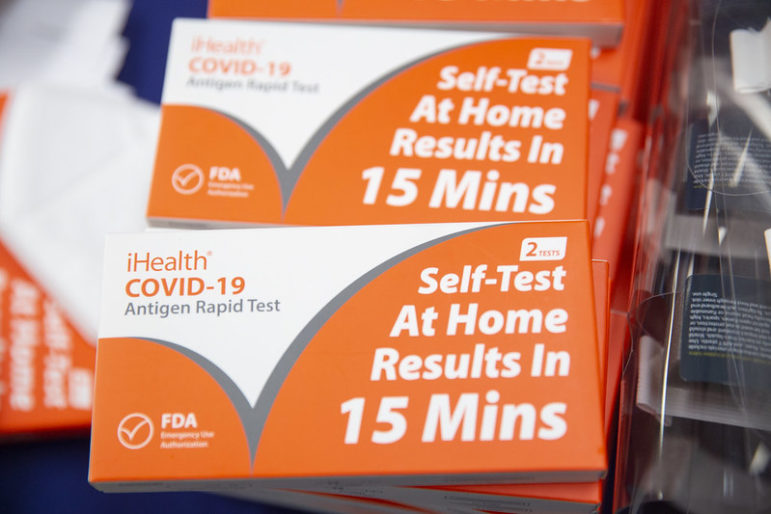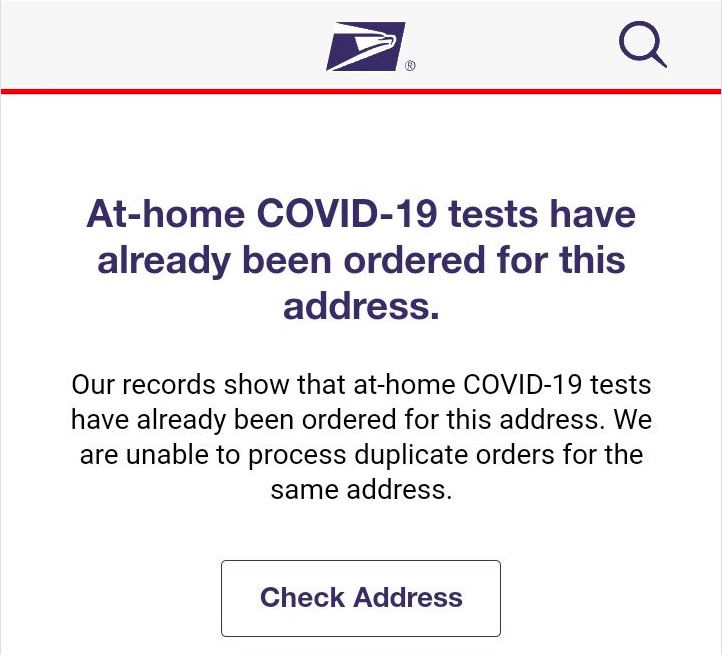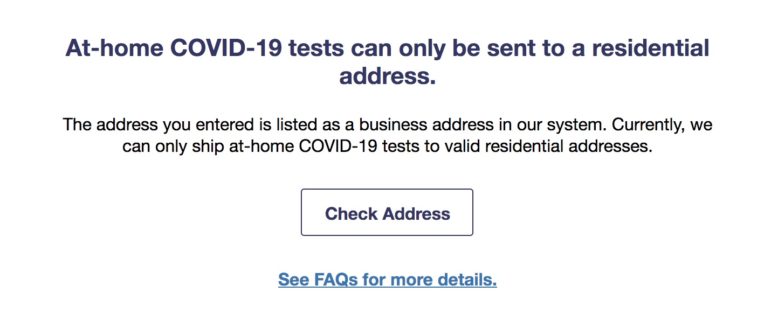U.S. residents can sign up to receive four free COVID tests delivered to their home address. But the program limits one order per household, proving to be a problem for people staying in group homeless shelters or hotels.

John McCarten/NYC Council Media Unit
At-home COVID-19 tests.The federal government’s free at-home COVID test initiative is having mixed results for New Yorkers staying in homeless shelters, with some people locked out by residential requirements even as others manage to snag a kit.
A new federal website that went live Tuesday allows U.S. residents to receive four free COVID tests delivered to their home address, but the program, administered by the U.S. Postal Service and Department of Health and Human Services, limits one order per household. That proves a problem for people staying in group shelters or hotels who have been denied tests because someone else at their address already ordered a kit.
Alison Gibney, who stays at a College Point shelter run by the organization WestHab, said she was unable to order a test and shared a screenshot of a response informing her that someone had already placed an order using the building address. Another person staying at the 200-bed shelter, who asked not to use her name, said she received the same response.
The program “is not built for a New York environment,” Gibney said.
Ernest Poree, a musician staying at a hotel used as a temporary shelter in Brownsville, received two different responses rejecting his application. The first said “At-home COVID-19 tests can only be sent to a residential address.” After he entered a room number into the address bar, the site informed him that someone else had already ordered a test at the building.
In contrast, two other shelter residents told City Limits they were able to receive a test after putting in their facility address. One woman has been staying at a Midtown Manhattan shelter, while another resides at a hotel in Sunnyside. Both shared screenshots of their confirmation messages. It was unclear whether they were the first people in the buildings to order tests through the new Biden Administration initiative.
The federal initiative comes as city agencies have begun to fill the gap in testing at many shelters, say residents, staff and advocates.
“They’ve been pretty decent on that,” said Poree, the musician in Brownsville. He said he has been getting tested about twice a week at the hotel since the end of December 2021 and at times receives a round-trip MetroCard.
Earlier this month, New York City’s Department of Homeless Services (DHS) and the Department of Health and Mental Hygiene (DOHMH) increased on-site testing from once a month to once a week amid a surge in new COVID-19 cases fueled by the omicron variant.
A total of 1,100 people living in DHS shelters or connected with agency-funded street outreach teams had tested positive for COVID-19 in the 10 days leading up to Jan. 12, DHS reported. That’s a nearly 950 percent increase from the 106 active cases that the agency tracked on Dec. 8.
DHS and DOHMH have also distributed at-home tests at several shelters across the city, though those tests have not yet reached every site. One administrator overseeing three shelters said the city has delivered at-home tests to one of the locations, but not the other two.
A DOHMH spokesperson said that the city will begin distributing home test kits that were recently provided by the state’s Department of Health.
Jacquelyn Simone, policy director at the Coalition for the Homeless, said the organization has not yet received reports of shelter residents being locked out of the federal program, but said the city’s testing regimen has begun to reach more people.
Still, she said, testing can only go so far to prevent vulnerable people in shared spaces from contracting COVID-19. Simone renewed her organization’s call to move people out of congregate shelters and into private hotel rooms to limit the spread of the illness—an initiative that worked well earlier in the pandemic before ex-Mayor Bill de Blasio ordered it to end.
“The testing has been coordinated across many agencies and we haven’t heard many complaints about the availability of testing, but we are hearing from people who say they don’t feel safe,” Simone said.
More than 62.5 million people in the U.S. and elsewhere have visited covidtests.gov over the past seven days, according to a site that tracks traffic to federal websites. Like shelter residents, many tenants in apartment buildings have been unable to access the tests. U.S. officials said the issue has occurred in buildings not registered as multi-unit complexes.
“We can’t guarantee there won’t be a bug or two,” President Joe Biden’s spokesperson Jen Psaki said Tuesday. “But the best tech teams across the administration and the Postal Service are working hard to make this a success.”
The U.S. Postal Service and Health and Human Services did not immediately provide a response for this story when asked about the issue.
People without internet access can also request COVID tests by phone by calling 1-800-232-0233. The automated system allows callers to request a test, find out about vaccine locations in their area or talk with a representative. However, the wait time to speak with a representative was more than two hours long when City Limits contacted the service Thursday at 2:10 p.m.
The flawed program design poses an issue of unequal access for low-income New Yorkers, like people living in homeless shelters and others experiencing housing insecurity, including families doubled up in crowded homes, said Open Hearts Initiative Director of Organizing Sara Newman.
“When the federal government doesn’t even think about how to include people in shelters and on the streets in the at-home test program, that’s just one more symptom of a society that fundamentally doesn’t see people who are homeless as people,” Newman said.
Newman cited the federal Interagency Council on Homelessness, which determined that people experiencing homelessness face a higher risk of contracting COVID-19 than the general population.
“People experiencing homelessness should be a top priority, not an afterthought,” she said.











